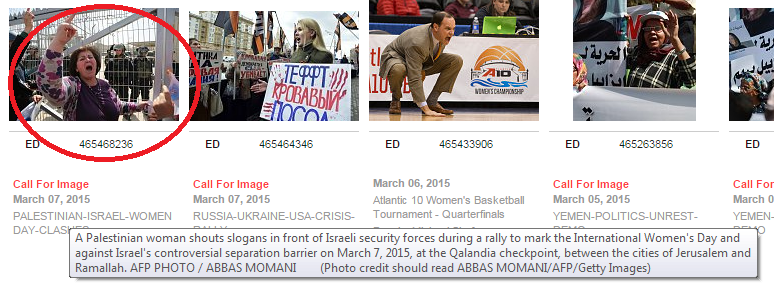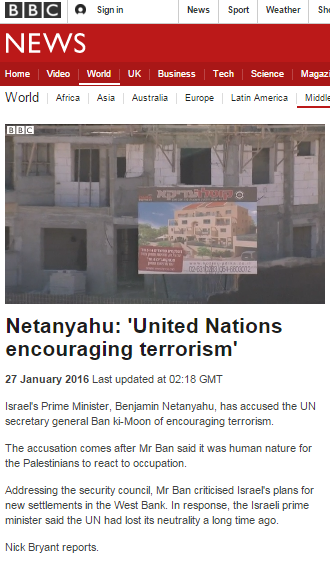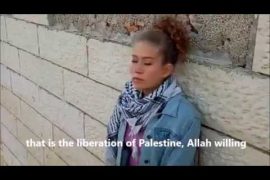If there is one thing which should have become perfectly clear to foreign journalists since the beginning of July it is that the entry of building supplies into the Gaza Strip – which was increased in recent years due to intense pressure from assorted international bodies and aid agencies – was abused by Hamas to construct cross-border attack tunnels rather than for the advancement of projects which would have improved the lives of the people of Gaza.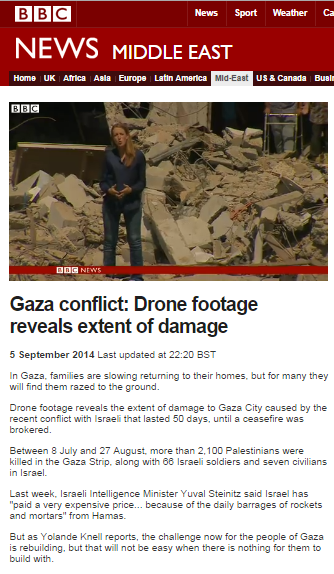
However, not only has the BBC shown no interest whatsoever in discussing Hamas’ misappropriation of those building supplies or the very serious subject of the accountability of the aid agencies and international bodies which were supposed to be supervising and guaranteeing the construction projects for which those materials were destined; it continues to present the issue in terms of “Israel says”.
On September 5th Yolande Knell produced a report for BBC television news programmes which also appears on the BBC News website under the title “Gaza conflict: Drone footage reveals extent of damage“. On BBC television the presenter introduced the item thus:
“Now the conflict in Gaza has moved out of the headlines but thousands of Palestinians in the territory still face severe hardship. The UN estimates that around 17 thousand houses were destroyed in the conflict. But, a blockade is in place stopping companies from importing building supplies. Israel says it fears that militants would use the materials to rebuild tunnels which could be used for renewed cross-border attacks by militant fighters. Our Middle East correspondent Yolande Knell reports.” [emphasis added]
Knell’s report uses footage promoted on Twitter several days previously by the BBC’s Jon Donnison which shows the area of Shuja’iya where some of the most intense fighting took place and which – as we have noted here previously – is not representative of the situation in the Gaza Strip as a whole.
“The areas highlighted by the UN damage assessment report are compatible with the Israel Defense Forces briefings on the location of Hamas facilities, especially in the Shuja’iya area, which was the arena of the most intense battles.
While Hamas concentrated its terror facilities – systematically and deliberately targeting Israeli civilians in densely populated urban areas in Gaza – the vast majority of these urban areas were undamaged. “
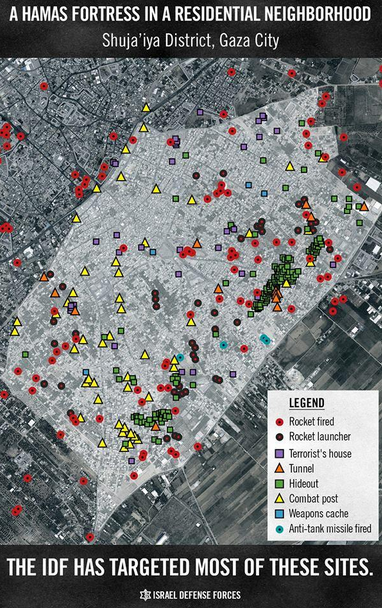
Knell, however, refrains from putting the images she wants BBC audiences to see into their correct context.
“Destruction on an overwhelming scale. From above you get a new perspective on Shuja’iya – one of the areas worst affected by the latest Gaza conflict. Palestinian homes were bombed and battered by Israeli airstrikes and tank fire. Israeli troops fought militants here and targeted their tunnels. When the fighting stopped, residents returned to what remains.”
Knell’s second aim in this report is to continue promotion of the now long-running BBC campaign on the topic of border restrictions.
“Her grandson is a builder but with no steel or cement available, he can’t yet rebuild his own house.”
“Now people are coming back but you can see there’s very little reconstruction that’s going on.”
“And there are no new building materials that are coming in. Israel has long imposed tight border restrictions on Gaza, saying they’re needed for security and since the ceasefire nothing’s changed. Aid agencies say a rethink is urgently needed. There would still be a housing crisis even if Israel fully opened its one commercial crossing.” [emphasis added]
As has also been noted here previously, the Kerem Shalom crossing does not currently run at full capacity due to a lack of demand from the Palestinian side.
Knell closes her report by saying:
“While Gaza’s calm, there’s still no political solution to its underlying problems and Palestinians here are now feeling them more acutely than ever.”
What she refrains from clarifying to audiences is that a “political solution” which allows Hamas to import more weapons and to get its hands on supplies to build new tunnels will inevitably lead to yet another round of conflict in the Gaza Strip. It really is high time that Yolande Knell and her colleagues stopped their simplistic context-free PR campaigning on behalf of Hamas’ demand to ease border restrictions and began to fulfil their obligation to inform BBC audiences accurately and comprehensively of the real issues behind this story.
Related Articles:
Reporter in the rubble: what is missing from BBC presentation of structural damage in Gaza?

